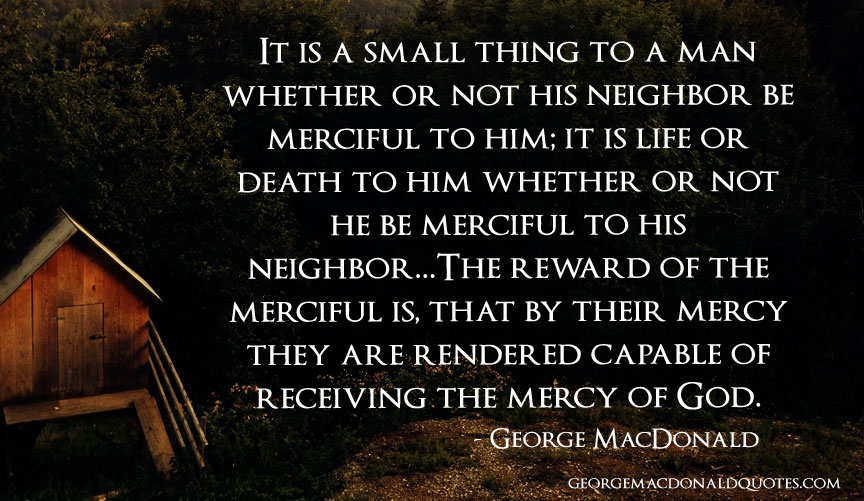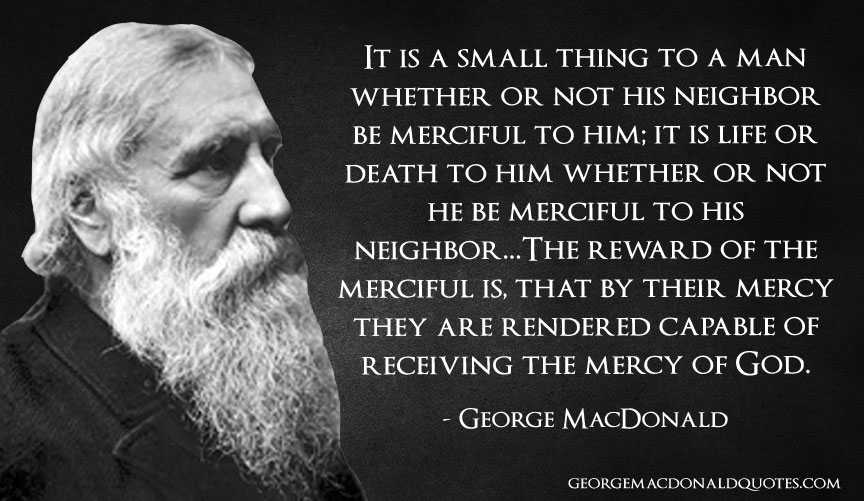[previous] [next]
 Download & Share
Download & Share
“Mercy cannot get in where mercy goes not out. The outgoing makes way for the incoming. God takes the part of humanity against the man. The man must treat men as he would have God treat him. ‘If ye forgive men their trespasses,’ the Lord says, ‘your heavenly father will also forgive you; but if ye forgive not men their trespasses, neither will your father forgive your trespasses. And in the prophecy of the judgment of the Son of man, he represents himself as saying, ‘Inasmuch as ye have done it unto one of the least of these my brethren, ye have done it unto me.’
But the demand for mercy is far from being for the sake only of the man who needs his neighbour’s mercy; it is greatly more for the sake of the man who must show the mercy. It is a small thing to a man whether or not his neighbour be merciful to him; it is life or death to him whether or not he be merciful to his neighbour. The greatest mercy that can be shown to man, is to make him merciful; therefore, if he will not be merciful, the mercy of God must compel him thereto. In the parable of the king taking account of his servants, he delivers the unmerciful debtor to the tormentors, ’till he should pay all that was due unto him.’ The king had forgiven his debtor, but as the debtor refuses to pass on the forgiveness to his neighbour–the only way to make a return in kind–the king withdraws his forgiveness. If we forgive not men their trespasses, our trespasses remain. For how can God in any sense forgive, remit, or send away the sin which a man insists on retaining? Unmerciful, we must be given up to the tormentors until we learn to be merciful. God is merciful: we must be merciful. There is no blessedness except in being such as God; it would be altogether unmerciful to leave us unmerciful. The reward of the merciful is, that by their mercy they are rendered capable of receiving the mercy of God–yea, God himself, who is Mercy.” – George MacDonald. From The Hope Of The Gospel.
[previous] [next]
Get This Book In Audio
Get This Book In Digital Text & Print








Leave a Reply